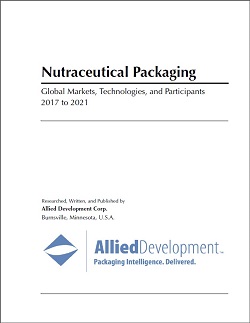COVID-19 Anti-Counterfeit Packaging

Law enforcement agencies and drug suppliers in the U.S. are being urged to step up their investment in anti-counterfeiting measures as part of plans to tackle the COVID crisis. The advice from the International Hologram Manufacturers Association (IHMA) comes in the wake of reports of a 300% increase this year in adverts on the dark web for coronavirus vaccines, fake vaccination certificates and fake negative COVID-19 test results.
This is one of the latest lucrative markets around the trade in counterfeit medicines controlled by criminals, according to the IHMA, which says the development is one of the largest public health concerns of recent times.
The World Health Organisation (WHO) has previously voiced its concerns that the growing volume of fake medicines is opening opportunities for counterfeit products. Counterfeiting is a multi-billion-dollar problem, but the situation in the U.S. is of concern as criminals take advantage of people who are desperate for Covid vaccines or being misled by the rampant misinformation about the pandemic.
The IHMA is calling for supply chains and authorities to review their anti-counterfeiting plans before the situation exacerbates further in the scramble to secure vaccines. The news comes as research indicates that some fraudulent vaccines have been sold for upwards of $1000 per dose.
Authorities must ramp up their plans for investment in authentication and verification technologies to effectively protect people and distribution channels to stem the flow of counterfeits, particularly the legitimacy of vaccines bought on the dark net cannot be effectively validated.
Covid has created high demand for vaccines and an IHMA poll revealed that that almost 50% of manufacturers and suppliers of holograms had seen an increase in demand from customers, specifiers and end-users for devices and technologies in the face of the pandemic.
“COVID presents opportunities for criminals, who are infiltrating global supply channels, deploying scams and counterfeiting measures to trick worried people and damage legitimate manufacturers. Falsified medicines and test kits among other items can pose a terrible threat and endanger lives," says Dr. Paul Dunn, chair of the IHMA. “Supply chains and drugs’ infrastructures across the country must be bolstered with stronger, more effective security plans, including the introduction of hard-hitting anti-counterfeiting regulations and strategies.
“For instance, the use of track and trace programs featuring security devices are especially helpful, facilitating greater cooperation among those with law enforcement responsibility and providing harder hitting ways to tackle mutual threats and bring down criminals before people’s lives are endangered.
“Holograms can to be effective in the frontline fight against counterfeiters and fraudsters, protecting brands and profits. Those involved in the supply chain are reassured by their presence on products, recognizing the security and financial benefits provided.”
The use of well-designed and properly deployed authentication solutions, as advocated by the ISO12931 standard, enables examiners to verify the authenticity of a legitimate product, differentiating it from fake products coming from counterfeiting hot spots in Asia and eastern Europe. Even those that carry a ‘fake’ authentication feature can be distinguished from the genuine item if that item carries a carefully thought-out authentication solution.
For more information, visit www.ihma.org.
Looking for a reprint of this article?
From high-res PDFs to custom plaques, order your copy today!







